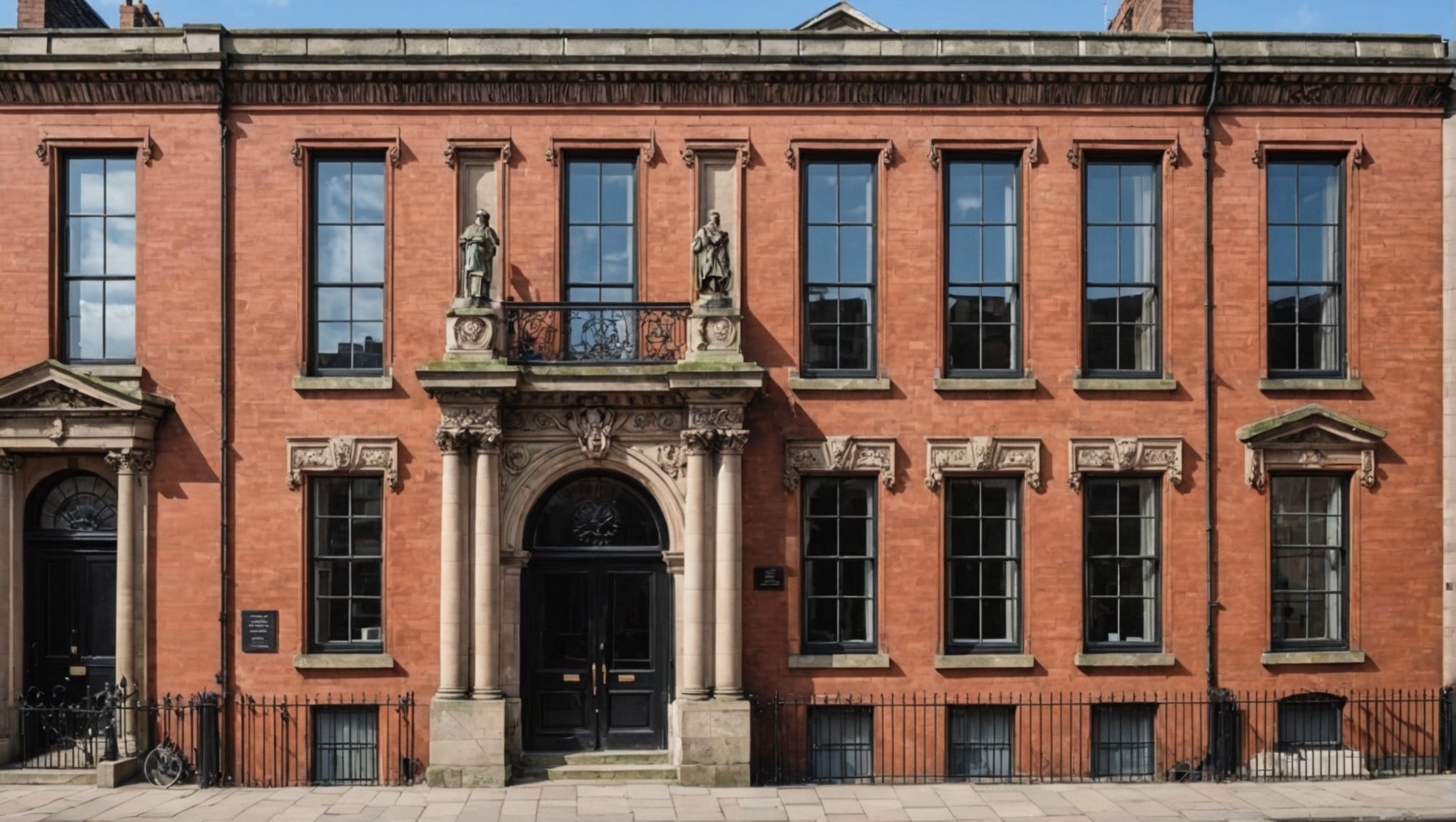Owning a historic property can be both a point of pride and a significant financial investment. These properties often come with a hefty price tag and require meticulous maintenance to uphold their landmark status. However, in cities like Liverpool, owning a historic property under conservation can come with significant tax benefits. These benefits can greatly offset the costs of upkeep and help preserve the architectural heritage of the city. Let’s take a look at the financial incentives that make owning a historic property in Liverpool an appealing prospect.
1. Conservation Area Relief
The concept of Conservation Area Relief is a cornerstone of historic preservation incentives in Liverpool. This relief can provide substantial financial benefits to owners of historic properties. Simply put, if you own a property in a designated conservation area, you could be eligible for significant tax reductions.
A découvrir également : Unleash the magic of real estate video in colorado
The aim of Conservation Area Relief is to encourage owners to maintain and enhance the character of their historic properties. This is achieved by offering them a financial incentive in the form of tax relief. This benefit is calculated on the cost of maintaining and improving the property, thereby substantially lessening the financial burden associated with owning a historic property.
2. Heritage Maintenance Funds
The Heritage Maintenance Fund is another vital component of the tax benefits associated with owning a historic property in Liverpool. This fund is specifically designed to assist owners in maintaining their historic properties to the required standard and to ensure they remain assets to the community.
Sujet a lire : How can non-UK residents navigate changes in inheritance tax laws affecting property ownership?
The way it works is simple: if you own a historic property and you’re spending money on its upkeep, you can apply to the Heritage Maintenance Fund. If approved, you’ll receive a grant to help cover the costs of maintenance, effectively reducing your out-of-pocket expenses. It’s important to note that this is not a tax deduction, but a direct monetary assistance.
3. Listed Building Tax Relief
Listed buildings are those that have been officially designated as being of special architectural or historic interest. In Liverpool, owning a listed building comes with its own specific tax benefits. This includes Listed Building Tax Relief, which can result in substantial savings in property taxes.
The principle behind this tax relief is to incentivise the preservation of listed buildings by making it financially viable for owners to maintain these properties. Owners of listed buildings can claim relief on the costs of maintaining the property, which can significantly reduce the amount of property tax they’re required to pay.
4. Capital Allowances on Renovation Costs
If you own a historic property under conservation in Liverpool and decide to undertake a renovation project, you could be eligible for capital allowances. Essentially, these are tax reliefs that allow you to deduct the cost of certain types of capital expenditure from your taxable income.
A renovation of a historic property can be a costly endeavor, but with the help of capital allowances, the financial burden can be significantly reduced. The British government recognises the importance of preserving historic and architectural heritage, and these allowances are one way they encourage owners to invest in the conservation of these properties.
5. Zero-Rated VAT on Approved Alterations
Lastly, owners of historic properties in Liverpool can benefit from zero-rated VAT on approved alterations. This is a significant benefit as the standard rate of VAT in the UK is currently 20%. This means that you could potentially save a fifth of the cost of any approved alterations.
The key word here is ‘approved’. In order to qualify for zero-rated VAT, alterations must be approved by the relevant conservation authority. This ensures that all alterations are in keeping with the character and architectural integrity of the property. This benefit, therefore, not only saves you money but also guarantees that any changes you make will enhance and preserve the historic value of your property.
In conclusion, while owning a historic property under conservation in Liverpool can be a substantial commitment, the available tax benefits can make it a financially viable and rewarding investment.
6. Historic Properties Rental Income Tax Exemptions
The sixth tax advantage that you can get from owning a historic property in Liverpool involves the income you can potentially earn from renting out the property. The UK government, recognizing the importance of maintaining these landmarks, has provided considerable tax exemptions for owners of historic properties who opt to rent out their properties.
If the property is listed and is being rented out, the owner can avail of a rental income tax exemption. This is a substantial benefit that can significantly increase the net rental income of the property owner. The only condition is that the rented property must be well-maintained and meet the required standards set by the conservation authorities.
In terms of procedure, it is quite straightforward. You simply need to declare your rental income in your tax returns. The tax authorities will then grant you an exemption on your tax liabilities arising from your rental income. This tax benefit should encourage property owners to utilise their properties optimally, thereby helping to preserve these historic buildings as lived-in parts of the city’s heritage.
7. Tax Credits for Rehabilitation
The seventh, but by no means the least, tax benefit of owning a historic property under conservation in Liverpool is the availability of tax credits for rehabilitation. This incentive is specifically aimed at those owners who undertake significant rehabilitation works on their properties while preserving their historic characters.
These are not just mere deductions from your tax liability but actual credits that directly reduce your tax payable. For instance, if you invest £100,000 in rehabilitating a historic property and the tax credit rate is 20%, £20,000 will be deducted directly from your tax liability. If the rehabilitation work is conducted following the standards set by the conservation authorities, the property owner can claim the tax credits.
Rehabilitation of historic properties could be expensive due to the unique architectural elements that need to be preserved. However, the availability of tax credits for rehabilitation makes it less daunting for property owners, providing them with a substantial financial return on their investment in property rehabilitation.
Conclusion
In summary, the various tax benefits available for owners of historic properties in Liverpool make owning such properties not just a noble act of custodianship of our historical and architectural heritage, but also a financially rewarding investment. These benefits – Conservation Area Relief, Heritage Maintenance Funds, Listed Building Tax Relief, Capital Allowances on Renovation Costs, Zero-Rated VAT on Approved Alterations, Rental Income Tax Exemptions, and Tax Credits for Rehabilitation – can significantly reduce the financial burden of owning and maintaining a historic property.
It is evident that the city of Liverpool, in partnership with the UK government, greatly values the preservation of its architectural and historical heritage. Through these financial incentives, they are ensuring the continuity of Liverpool’s rich architectural legacy for future generations. As a potential or existing owner of a historic property under conservation in Liverpool, you stand to benefit from these incentives while contributing to the preservation of the city’s unique heritage.






